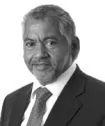Introduction
On 19 December 2017 the Energy Commission of Ghana (the Energy Commission), the regulator of the energy sector in Ghana, issued a public notice warning that the sale of electricity from renewable energy and other sources to a third party within the designated operational zones of the Electricity Company of Ghana and Northern Electricity Distribution Company without a licence/permit from the Energy Commission is illegal.
Per the notice, companies engaged in, or intending to engage in, such activity were advised to cease operations with immediate effect and to terminate all sales or power purchase agreements or face prosecution.
Licensing regime
The Energy Commission Act, 1997 (Act 541) stipulates that participation in any segment of the power sector, for either transmission, wholesale supply, distribution or sale of electricity, requires a licence.
Furthermore, the Renewable Energy Act, 2011 (Act 832) proscribes any form of commercial activity in the renewable energy industry without a licence issued in accordance with that Act. The commercial activities contemplated by Act 832 include production, transportation, storage, distribution, sale, marketing, importation, exportation, re-exportation, installation and maintenance.
There are currently three distribution utilities licensed by the Energy Commission, which are as follows:
- Electricity Company of Ghana, which serves the southern part of Ghana (inter alia, Greater Accra, Central, Ashanti, Eastern and Western Regions);
- Northern Electricity Department Company, which serves northern Ghana; and
- Enclave Power Company, which serves the free zone enclave in Ghana.
Background to the regulatory notice
In the past, Ghana's energy source was mainly a hydro-thermal blend. As a result of a well-documented generation deficit by the State, a number of measures were adopted, including the enactment of Act 832, to provide for the development, management and utilisation of renewable energy sources.
Since then, a number of companies have entered the renewable energy sector, principally solar. These companies have obtained wholesale electricity supply licences1 from the Energy Commission and have concluded power purchase agreements with distribution utilities. However, as generation from renewable sources usually requires significant investment, including in the form of finance and time, there appear to have been delays in bringing the generation plants on stream.
Therefore, as an interim measure, a number of companies have been marketing solutions to the power problem, particularly to industries looking to bridge the power deficit from the State, and to reduce costs incurred from use of power supplied by diesel generators. One of the solutions that has been marketed is for a power company to install a solar system on the premises of the industrial company while retaining ownership of the system. The power company then sells the power generated by the system to the industry. This solution has proven popular as it does not usually involve a significant capital outlay by the consumer at the outset. It is this solution that has been declared illegal by the Energy Commission.
Permissible activities
For industries that continue to explore options with respect to power supply, a solution has been proffered. The Energy Commission's public notice stated that interested parties were permitted to procure renewable energy systems by means of asset or equipment financing provided the financial arrangement is not based on the generation or consumption of electricity.
Dentons takes this opportunity to thank JLD & MB Legal Consultancy for their contribution to this month's newsletter
Footnote
1. A wholesale electricity supply licence authorises a person to install and operate facilities to procure or produce electricity for sale to bulk customers or to a distribution company for distribution and sale to consumers.
Dentons is the world's first polycentric global law firm. A top 20 firm on the Acritas 2015 Global Elite Brand Index, the Firm is committed to challenging the status quo in delivering consistent and uncompromising quality and value in new and inventive ways. Driven to provide clients a competitive edge, and connected to the communities where its clients want to do business, Dentons knows that understanding local cultures is crucial to successfully completing a deal, resolving a dispute or solving a business challenge. Now the world's largest law firm, Dentons' global team builds agile, tailored solutions to meet the local, national and global needs of private and public clients of any size in more than 125 locations serving 50-plus countries. www.dentons.com.
The content of this article is intended to provide a general guide to the subject matter. Specialist advice should be sought about your specific circumstances.


